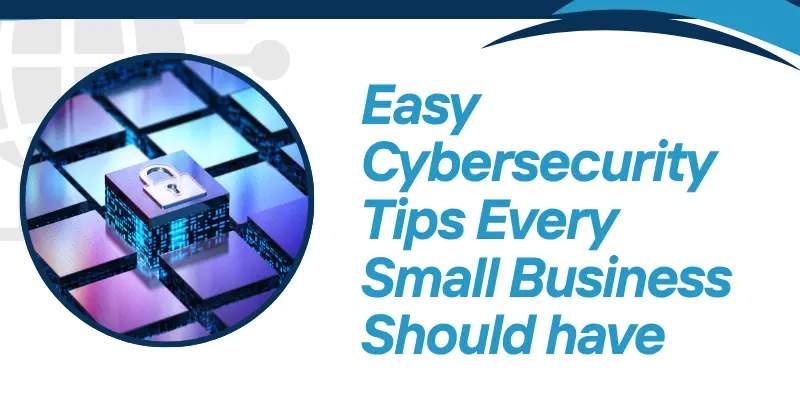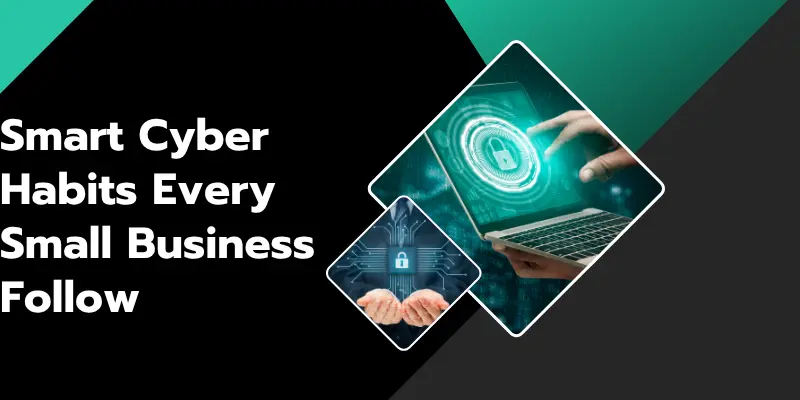Cybersecurity for Small Businesses – Stay Safe & Secure Now
Published: 19 Jun 2025
Running a small business in today’s world means being constantly connected to the Internet-whether it’s to maintain a website, send email, or explore new markets. From my own journey as a freelance tech consultant, I quickly realized that cybersecurity isn’t optional; it’s essential. When I helped a local bakery move their records to the cloud, the company saw how easily a digital fraud attempt could sneak in. The owners weren’t aware that simply using computer-based tools put them at risk. They needed a plan-a real one. Not just a file in their drawer but something built into their culture of security.
Thankfully, tools like the Small Biz Cyber Planner 2.0 and the Cybersecurity Tip Sheet (both created by the FCC) offer exactly that. I used these online resources to help that bakery create a customized approach. We set up a mobile device usage policy, added payment protections, and trained staff to watch for phishing. This action plan boosted their consumer confidence and secured their operations. The updated one-page tip sheet gave us quick wins like credit card security practices and better use of cloud computing services. With this kind of responsible and efficient setup, the business could reach larger markets without sacrificing security. If you’re running a small business, think of cybersecurity not as an expense but as a smart investment that protects your data, your customers, and your peace of mind.
Easy Cybersecurity Tips Every Small Business Should have
Back when I started managing IT support for a friend’s small business, we never imagined how much of an impact broadband and information technology could have. We quickly saw how powerful these tools were in helping the business grow and reach new markets.

It boosted productivity, improved efficiency, and opened doors we didn’t even know existed. But with that growth came risks. Our data became more vulnerable, and we started noticing strange login attempts-signs of growing cybersecurity threats.
That’s when I knew we needed a real cybersecurity strategy. We developed a plan to protect not just the systems, but also the customers who trusted us. We secured our network, tightened access to sensitive areas, and made sure our IT setup was built for defense. We treated our online activity like a digital storefront-always needing protection. Even our most basic systems required attention. Every business today, no matter how small, needs to prioritize security. Don’t wait for an attack. Invest in a few smart habits now, and you’ll be protecting your own business, your data, and your customers. With the right strategy, your business can stay safe and continue to grow.
Smart Cyber Habits Every Small Business Follow
As a small business owner, I’ve seen how quickly a minor mistake online can turn into a major threat. That’s why I started by training employees in basic security principles.

We can manage our passwords by using top password management tools but, It’s not just about creating strong passwords or following Internet use guidelines-it’s about shaping clear policies that explain what happens if someone violates company cybersecurity rules. We set expectations on how to handle and protect customer information, and define clear rules for dealing with vital data. A strong start always begins with people.
From there, protecting our computers, information, and networks became the next step. I always remind my team to keep their machines clean by using security software, keeping their operating system and web browser updated, and setting antivirus to scan regularly. This is how we defend against viruses, malware, and other cyber attacks. We also make sure to enable the firewall on every system, especially for those working remotely. At home, employees have their Internet connection secured with proper software, and their systems are protected just like in the office.
On mobile, we set up a strict mobile device action plan. Devices must be password-protected, encrypted, and loaded with security apps to keep confidential information safe, especially when used on public networks. If a device is lost or stolen, our reporting procedures kick in immediately. For data safety, we take backup copies of all critical business data like financial records, human resources files, and databases-automatically and weekly, then store them offsite or in the cloud.
Cybersecurity Resources for Small Businesses
When I started my own small venture, I quickly realized how tough it was to find educational resources that explained cybersecurity in simple terms. Luckily, the Office of Communications Business Opportunities helped by providing Internet links to government agencies and private organizations. These links offered easy-to-understand tools, descriptions, and guidance-all for informational purposes. While the FCC doesn’t endorse any non-FCC product or service, it’s important to know they’re not responsible for external content, including its accuracy, completeness, or timeliness.
As my business grew, I found the Global Cyber Alliance (GCA) especially helpful. Their cybersecurity toolkit is designed for small businesses and packed with free resources. Articles like What Small Business Owners Need to Know About Cybersecurity and 3 Biggest Cybersecurity Threats Facing Small Businesses Right Now from Entrepreneur Magazine gave me clear insights into real-world dangers. On the tech side, Microsoft Cybersecurity Tips and Technology for Small Businesses made it easier for me to choose the right protections. And thanks to the FICO and U.S. Chamber of Commerce Assessment of Cyber Security Risk Report, I was able to understand where my company stood in terms of risk and how to take action.
U.S. Government Resources and Activities
Running a small business in today’s world means staying alert to cybersecurity risks. As a business owner, I’ve learned that digital safety is not just for large corporations-it’s a real national security concern. The economic health of a country depends on every business, big or small, staying safe from online threats. But here’s the good news: the government understands these challenges and offers tools to help you stay safe.
One tool I’ve used is the NIST Small Business Cybersecurity Corner-a great place for resources tailored to small firms. The FTC also provides easy-to-understand tips to help reduce your risk and counter potential threats. Another helpful program is the National Cyber Security Alliance (NCSA), which supports medium-sized businesses like mine. These available services have helped my team get prepared, and they can help you too.
Conclusion
So guys, in this article, we’ve covered cybersecurity for small business in detail. From my own experience, investing in basic protection like strong passwords, secure networks, and regular employee training goes a long way. I personally recommend starting with free resources from trusted government platforms like NIST and the FTC- they’re simple and effective. Don’t wait until a threat hits your business- take action today and make cybersecurity a top priority.
Cybersecurity means protecting your business’s computers, data, and online systems from hackers, viruses, and other online threats. Even small businesses need protection to keep their customer information safe.
Yes! The main types include network security, data security, application security, and cloud security. Each one protects a different part of your business’s digital world.
Network security protects your internet connection and internal systems from attacks. Yes, even small businesses should use firewalls and Wi-Fi passwords to block outsiders.
Absolutely. You need endpoint security to protect your computers and laptops. Viruses or malware can still attack through emails, USB drives, or unsafe downloads.
You need cloud security to keep your files and apps safe online. Make sure your provider has strong protections and that you use secure logins.
Application security means protecting the software you use, like email apps or sales tools. Updates and antivirus tools help block hackers from using these apps to get into your systems.
Yes. Even if you don’t use payment systems, your email, files, and customer info can still be attacked. Cybersecurity is about more than just money-it protects everything digital.
Yes! Teaching your staff about cybersecurity best practices like using strong passwords and not clicking suspicious links can stop many attacks before they start.
You don’t need to be an expert. Start small-install antivirus software, use strong passwords, and get help from a trusted IT service or online resource.
No, but it helps to start with the basics like network security, endpoint protection, and data backups. You can build up your security over time as your business grows.

- Be Respectful
- Stay Relevant
- Stay Positive
- True Feedback
- Encourage Discussion
- Avoid Spamming
- No Fake News
- Don't Copy-Paste
- No Personal Attacks

- Be Respectful
- Stay Relevant
- Stay Positive
- True Feedback
- Encourage Discussion
- Avoid Spamming
- No Fake News
- Don't Copy-Paste
- No Personal Attacks





